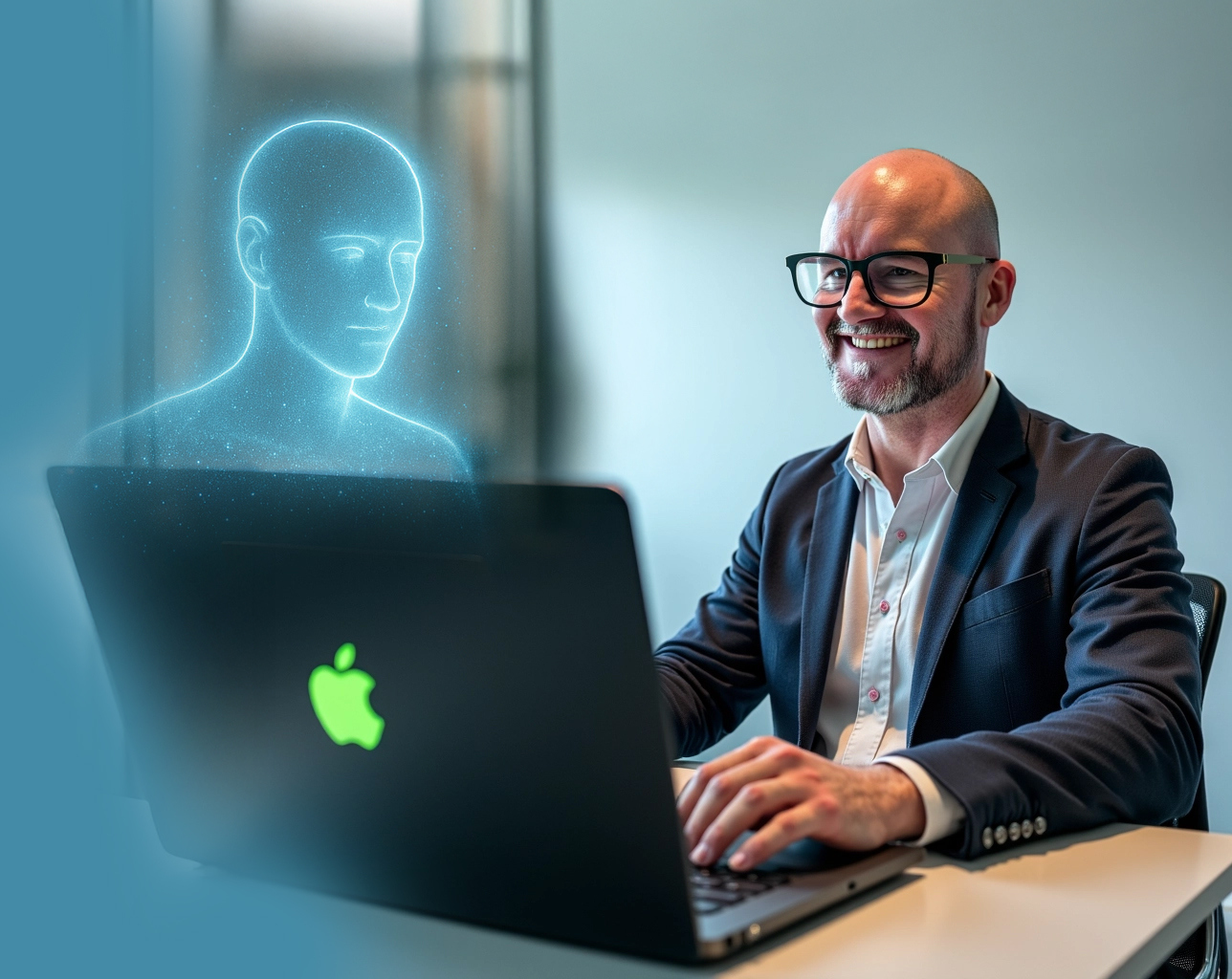
Beyond Automation: Building a Future of Human-AI Collaboration in the Workplace
Explore how human-AI collaboration is transforming the workplace. Discover why combining automation with creativity and empathy leads to greater innovation, pro...
AI technology now influences many parts of your daily routine. For example, digital assistants on your smartphone use AI to answer your questions and help organize your schedule. When you shop online, streaming platforms suggest new shows, or you read news articles, AI recommends options based on your habits. Smart home devices, like voice-activated speakers and thermostats, use AI to recognize your voice, automate tasks, and manage energy use. Navigation apps depend on machine learning, a form of AI, to plan the fastest routes by checking real-time traffic data. These features help you complete tasks more easily and create a more personalized experience. AI has moved from being a futuristic idea to something you use every day.
Recent reports show that workplaces have quickly adopted AI tools. 71% of organizations use generative AI regularly. This sharp increase includes tools that automate tasks and support decision-making (McKinsey, Forbes). In customer service, AI can respond to questions faster and handle routine inquiries. Project management teams use AI to track progress and suggest improvements. Data analysis tools powered by AI help businesses find trends and make better choices. Companies rely on AI to increase productivity, connect with customers more effectively, and keep up with changes in the market.
AI reaches far beyond technology and business. In healthcare, AI-powered programs help doctors review medical images, such as X-rays and MRIs, to find issues more quickly. Banks use AI to check for signs of fraud and protect customers’ accounts. Governments use AI to improve public services, such as managing traffic or planning city resources. These examples show how AI now affects daily life in many areas and why learning about AI matters for both professionals and everyday citizens.
AI’s growing influence means you benefit from learning how it works. This knowledge helps you adapt, create new ideas, and succeed as AI continues to change the world around you.
AI is changing how students learn in the classroom by creating more personalized experiences. Adaptive learning platforms use student data to adjust lessons, assignments, and feedback based on each person’s pace and skill level. For example, if you need extra help with math, these systems can provide more practice problems or clearer explanations. UNESCO explains that adaptive tools look at your strengths, areas for improvement, and learning preferences to offer resources that meet your needs. This method helps you stay engaged and make steady progress.
Artificial intelligence helps teachers manage their workload more efficiently. According to the World Economic Forum, almost 60% of teachers use AI to automate grading, monitor student progress, and handle classroom tasks. When AI takes care of these routine jobs, teachers have more time to create engaging lessons, guide students, and offer one-on-one support. This extra time means teachers can help you build important skills like critical thinking and teamwork, which are useful for your future.
AI-powered tools increase access to education for students from different backgrounds and abilities. Intelligent tutoring systems, translation tools, and accessibility features make learning more inclusive. For example, if you speak a different language or have a disability, AI can help you understand lessons and take part in class activities. UNESCO points out that AI can help with challenges like crowded classrooms, limited resources, and language differences, making it possible for more students to learn effectively.
AI provides instant feedback for both students and teachers. This immediate response helps you see where you need to adjust your learning strategies. It also allows teachers to change their teaching methods based on what is working. EdSurge explains that real-time data helps students learn faster and gives teachers information to improve lessons and assignments. This cycle of feedback and improvement helps everyone reach their learning goals.
AI is changing education by focusing on personalized learning, efficient teaching, and equal access for all students. As AI tools become more common, learning how to use them effectively will help you grow and succeed in school and beyond.
Companies in every industry now use AI to boost productivity, simplify tasks, and encourage new ways of working. The World Economic Forum reports that by 2028, 86% of employers plan to make AI a main part of their organizations. This shift will change many jobs and create a need for new skills. When you learn how AI works and how to use its tools, you prepare yourself to grow and adapt in your career.
AI knowledge has become a basic requirement for many jobs today. Forbes shows that 80% of workers are getting ready to use generative AI tools in their daily tasks. If you understand AI, you can access more advanced job positions and keep your skills valuable in a job market that now focuses on technology skills.
When you study AI, you improve your digital skills and learn to think more critically and solve problems. UNESCO and other education organizations point out that learning about AI helps you become more creative and flexible. These abilities help you handle new challenges at work and in everyday life.
If you lead a business, knowing how to use AI helps you stay ahead of others. Companies that train their teams in AI can use new technologies faster, create new products or services, and react quickly to changes in the market.
AI-based tools and learning platforms support ongoing education by giving you lessons that match your personal needs and progress. EdSurge explains that using AI in education helps you build habits for learning throughout your life, so you can keep up as technology changes.
When you build your AI skills now, you prepare for new opportunities, help drive progress, and make a strong contribution to your workplace and your community.
Businesses use AI to make their operations run more smoothly, find important information, and improve decision-making. For example, McKinsey reports that AI-powered analytics in retail have helped companies lower their inventory by up to 30% and increase sales by up to 6%. Banks and other financial organizations rely on AI to spot fraud, simplify compliance tasks, and create more personalized experiences for customers. In manufacturing, companies apply AI to predict when equipment needs maintenance, which helps reduce downtime and lowers costs.
AI is changing how students learn and teachers teach. Adaptive learning platforms and intelligent tutoring systems use AI to adjust lessons in real time, meeting each student’s needs. Forbes and UNESCO highlight how AI tools automate grading and help with administrative work, so teachers can spend more time teaching and guiding students. Schools that use AI literacy programs often see students more engaged and better prepared for careers that require technology skills.
AI improves many parts of daily life, from healthcare to public services. Doctors use AI-assisted tools for faster and more accurate diagnoses. Government agencies use AI chatbots to provide support at any time, making services more accessible. The World Economic Forum notes that cities use AI to manage traffic flow and save energy, showing how AI benefits entire communities.
AI training workshops give you hands-on practice that connects what you learn in theory to real-world situations. When you join, you build skills that help you work with AI tools, automate routine tasks, and use data to guide your decisions. These skills help you keep up with changes in today’s fast-moving business world.
Our AI training workshops are made for professionals, teachers, and business leaders who want to prepare for the future. Skilled instructors guide you through hands-on projects using updated materials. You can use what you learn in each session right away in your work.
AI influences daily routines through digital assistants, personalized recommendations, smart home devices, navigation apps, and more, making tasks easier and experiences more tailored.
AI enables personalized and adaptive learning, supports teachers with automated grading, expands access through translation and accessibility tools, and provides real-time feedback to enhance student progress.
Learning AI skills helps you stay competitive in the workforce, adapt to shifting job requirements, boost digital and critical thinking, and prepare for ongoing technological changes.
AI workshops offer practical, hands-on experience, improve decision-making, increase productivity, foster innovation, and connect you with other professionals for collaborative learning.
AI is transforming business efficiency, education, healthcare, finance, manufacturing, and public services, driving innovation and improving outcomes across sectors.
Gain hands-on experience with AI tools and practical skills to boost your career and organization. Prepare for the future with expert-led workshops.
Explore how human-AI collaboration is transforming the workplace. Discover why combining automation with creativity and empathy leads to greater innovation, pro...
Explore how AI has evolved from language models to systems navigating GUIs and web browsers, with insights into innovations, challenges, and the future of human...
AI misuse at work isn’t an employee problem—it’s a leadership crisis. Explore why employees turn to AI tools in secret, the risks involved, and how leadership m...

